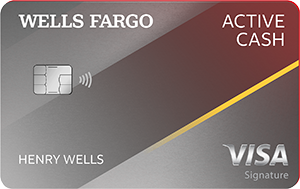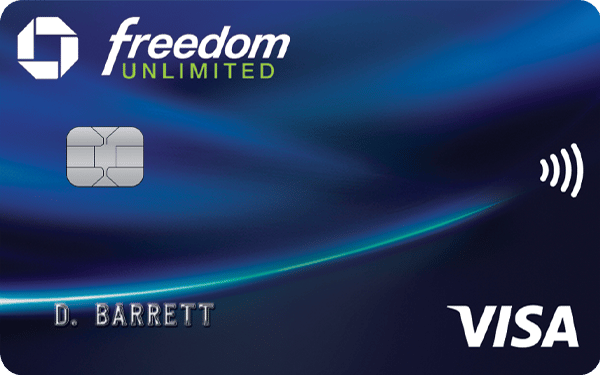Harness the potential of your temporary savings with these lucrative CD options.
If you’re looking to grow your savings over a fixed period, a certificate of deposit (CD) could be an excellent option. CDs offer the advantage of locking in a competitive interest rate for the duration of the term you choose, typically ranging from a few months to several years. While withdrawals are generally restricted until the CD matures, the interest rates on these accounts often surpass those of high-yield savings and money market accounts.
While some financial institutions require substantial minimum deposits, often exceeding $25,000 or even $100,000, to qualify for their highest CD rates, there are still several banks offering annual percentage yields (APYs) above 5.00% without such stringent wealth requirements.
Top Picks for High-Yield CD Rates Over 5.00% APY
CD rates are subject to change, but once you open an account, your APY remains fixed until maturity. Aside from the interest rate, it’s crucial to consider factors like the term length, minimum deposit requirement, and potential penalties for early withdrawals.
Equally important is ensuring that your funds are protected by deposit insurance from either the Federal Deposit Insurance Corporation (FDIC) or the National Credit Union Administration (NCUA). The following banks, all of which provide FDIC coverage, currently offer competitive CD rates exceeding 5.00% APY.
BMO Alto: Maximum 5.25% APY
BMO Alto™ stands as a virtual arm of BMO Harris Bank, exclusively operating online and offering a range of CDs spanning from six months to five years. Among its offerings, the highest yield is found in its 12-month term, with the distinctive feature of not requiring any minimum deposit.
Nevertheless, it’s important to note that its 12-month CD entails an early withdrawal penalty of 180 days, which might seem steep compared to alternatives. Additionally, BMO Alto provides a high-yield savings account.
Benefits:
• Competitive APYs
• Diverse range of terms
• No minimum deposit required
Drawback:
• Relatively high early withdrawal penalty
Rising Bank’s Attractive CD Rates: Earn Up to 5.35% APY
1. Rising Bank Certificates of Deposit
• Our Rating: 4/5 stars
• Initial Deposit Required: $1,000
• 1-Year APY: 5.31%, 3-Year APY: 3.85%, 6-Month APY: 5.35%
Analysis: Rising Bank offers competitive interest rates on their Certificates of Deposit, placing them among the top performers in the current market. These CDs provide an attractive option for individuals seeking to grow their savings with reliable returns. Moreover, Rising Bank provides a 10-day grace period before implementing early withdrawal penalties, enhancing flexibility for account holders. Additionally, the online platform extends its offerings to various deposit account options, catering to diverse financial needs.
Overview: While Rising Bank may offer fewer CD terms compared to some competitors, the appealing range of options combined with commendable APYs renders them a compelling choice for prospective investors. Although the minimum opening deposit requirement exceeds that of certain counterparts, the potential benefits of investing with Rising Bank justify this initial investment.
Benefits:
• Competitive APYs
• Generous 10-day grace period
• Convenient online account opening
• Diverse range of CD terms
Drawbacks:
• Minimum deposit requirement may be higher than alternatives
• Early withdrawal penalties can be significant
• Lack of in-person services
2. Rising Bank CD Rates Details
• Top CD Rate: 5.35% APY
• Preferred CD Term: 6 Months
• Minimum Deposit: $1,000
• Early Withdrawal Penalty: Up to 180 days’ interest
Online financial institutions are renowned for their competitive interest rates, and Rising Bank exemplifies this trend. While their selection of CD terms may be narrower compared to some peers, the offered APYs often rival the best rates available in the market. Particularly noteworthy is the tendency for shorter-term CDs to feature higher rates, making Rising Bank an attractive destination for short to mid-term savings goals. However, even the longer-term APYs remain competitive.
Opening a CD with Rising Bank requires a minimum deposit of $1,000, and as with traditional CD accounts, early withdrawal may incur penalties. Nevertheless, the 10-day grace period offered by Rising Bank allows for flexibility, offering account holders a brief window to make adjustments without facing standard penalties.
Top Yield: Up to 5.40% APY with Popular Direct
• Top CD Rate: 5.40% APY
• Preferred CD Term: 12 months
• Minimum Deposit: $10,000
• Early Withdrawal Penalty: Up to 365 days’ simple interest
With a minimum deposit requirement of $10,000, Popular® Direct demands a substantial initial investment, the highest on our list. However, their CD offerings span from three months to five years, potentially making it an attractive option for those with substantial savings, as you only need to commit your funds for a year to secure their top yield.
Regrettably, Popular Direct imposes a significant early withdrawal penalty. For a 12-month CD, the penalty stands at 120 days’ simple interest, escalating to a maximum of 365 days’ simple interest for longer terms. Additionally, the online bank extends its offerings to include a high-yield savings account.
Benefits:
• Competitive APYs
• Diverse array of term options
Drawbacks:
• Steep minimum deposit requirement
• Elevated early withdrawal penalty
Pacific Western Bank Powered by Raisin: Up to 5.51% APY
Pacific Western Bank CD Rates Details:
• Top CD Rate: 5.51% APY
• Top CD Term: 12 months
• Minimum Deposit Required: $1
• Early Withdrawal Penalty Details: Not Provided
Raisin functions as a digital hub, enabling you to initiate high-yield savings accounts and CDs across various financial institutions, all conveniently managed from one platform. Interestingly, while a direct CD acquisition from Pacific Western Bank necessitates a minimum deposit of $2,500, utilizing Raisin reduces this requirement to a mere $1.
Additionally, Raisin extends the opportunity to explore a 7-month CD with Pacific Western Bank, offering a slightly lower but still attractive APY of 5.35%. However, it’s the compelling 12-month rate that truly stands out. Notably, neither the platform nor the bank provides upfront details on the early withdrawal penalty.
Benefits:
• Competitive APYs
• Minimal minimum deposit prerequisite
• Simplified access to diverse high-yield savings alternatives
Drawbacks:
• Lack of transparency regarding early withdrawal penalties
• Limited availability with only a few terms on offer
LendingClub Bank: Maximum 5.30% APY
LendingClub Bank CD Rate Details:
• Top CD Rate: 5.30% Annual Percentage Yield (APY)
• Highest Yield CD Term: 12 months
• Minimum Initial Deposit: $2,500
• Early Withdrawal Penalty: Up to 180 days’ worth of simple interest
LendingClub Bank stands out in the digital banking sphere with its competitive CD offerings, spanning from six months to five years. However, its pinnacle yield is achieved with the 12-month term. Although the initial deposit requirement sits at a relatively steep $2,500, the potential returns justify the investment for those with the means.
For the 12-month CD, LendingClub Bank imposes a modest early withdrawal penalty of just 90 days’ simple interest, whereas longer terms incur a 180-day penalty. In addition to CDs, the bank provides a suite of financial products including checking accounts, high-yield savings, personal loans, and auto refinancing.
Benefits:
• Robust APYs
• Diverse array of terms
• Relatively lenient early withdrawal penalty
Drawback:
• Elevated minimum deposit prerequisite
Summary
Several financial institutions currently offer CDs with APYs exceeding 5.00%, allowing you to earn attractive returns on your deposited funds. Before opening a CD, it’s crucial to review all the terms and conditions to ensure it aligns with your financial goals. While CDs are generally not recommended if you anticipate needing access to the funds before the term expires, it’s advisable to avoid products with higher early withdrawal penalties, just in case unforeseen circumstances arise.



















